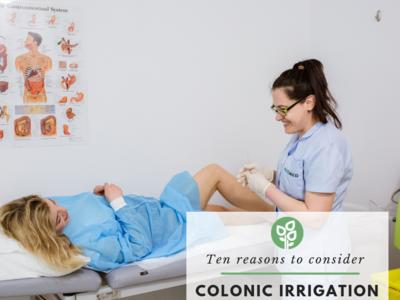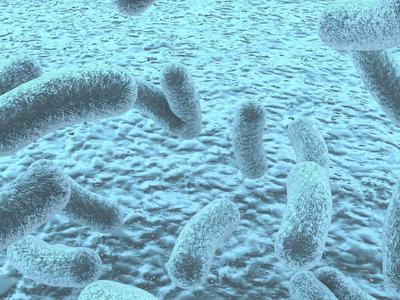Enlarged Prostate
A Big Problem Helped by Small Changes
As our bodies age, we find things don’t work quite as efficiently as they used to, and the things that no longer work as well as they once did will sometimes differ between men and women. For men, one of the most common problems associated with age is an enlarged prostate.
One in five men, aged 50 to 60, will suffer from an enlarged prostate, and it’s even more common in older men. In most cases, the root cause is hormonal; as men age, they possess less testosterone and there’s more accumulative oestrogen they don’t clean effectively. This hormonal change can play a significant role in the enlargement of the prostate.
While surgery can be an option for severe cases, there are a number of ways to help prevent or even treat an enlarged prostate, in conjunction with your medical practitioner. But the bottom line is, an enlarged prostate happens to all men and that’s why taking care of your diet and dealing with any nutritional deficiencies now can pay dividends later in life.
What Is an Enlarged Prostate?
The prostate is a gland in the male reproductive system located just below the bladder, between the rectum and the base of the penis. The prostate wraps around part of the urethra so when it grows, it can push against the bladder and urethra, triggering the urge to urinate even though the bladder might not be full. It can also prevent urine from flowing out naturally.
Over time, this constant pressure can weaken bladder muscles, potentially rendering the bladder unable to empty itself properly. The medical term for an enlarged prostate is ‘benign prostatic hyperplasia’ (BPH).
What Are the Symptoms of an Enlarged Prostate?
When the prostate begins to push against the bladder and urinary tract it can lead to:
-
frequent urination, especially at night
-
difficulty postponing urination
-
delayed urine flow
-
weaker and longer urine flow
-
dripping and leaking after urination
-
feeling that the bladder is not empty after urinating
Occasionally, men with enlarged prostates may find they can’t urinate at all. This is a condition called acute urinary retention (AUR), and it requires immediate medical attention.
What Causes an Enlarged Prostate?
The prostate usually grows during puberty to reach the size of a walnut. Then, around the age of 25, the prostate begins to grow again at a slower, but individual rate. However, it is hormonal changes in the body that appear to play a major role in the enlargement of the prostate. Following puberty, the prostate converts testosterone into dihydrotestosterone (DHT), a powerful androgen, and DHT stimulates cell growth in the tissue that lines the prostate gland.
Oestrogen then plays a not insignificant role in prostate enlargement at a later stage in life. As men age and testosterone levels drop, the proportion of oestrogen increases and this may trigger prostate growth.
How to Treat an Enlarged Prostate
Treatment depends on the severity of symptoms and the risk of complications, such as urinary retention. Most men with enlarged prostates experience mild to moderate symptoms that don’t require serious treatment plans. But for some men, the symptoms can be extremely painful and they can get worse over time, so a treatment plan is needed. This might include medication or surgery. However, there are a number of natural treatments that can ease the discomfort of an enlarged prostate.
Firstly, it’s important to correct nutritional deficiencies. A lot of men with enlarged prostates suffer from a zinc deficiency. Usually, they will not have enough antioxidants in their systems and a number of minerals might need to be added to their diet plans. There are also great herbal solutions to be found, with many boasting very positive results when taken in supplement form, all of which we have at Neomed. For example, a Japanese study found that stinging nettle may inhibit the membrane tissue activity of the prostate, which may subsequently suppress prostate-cell metabolism and growth. Research published in Nutrition Research and Practice also found that pumpkin seed oil was able to reduce symptoms of an enlarged prostate within three months, with maximal urinary flow rates improving significantly over six months. But first and foremost, check the zinc. It is one of the most crucial minerals when it comes to men’s health.
As well as zinc supplements, other recommendations to help with an enlarged prostate include:
-
Maintaining essential fatty acids that will help reduce inflammation and swelling.
-
Taking saw palmetto and Pygeum Africanum supplements as they help reduce inflammation and swelling. Research has shown that saw palmetto helps improve urinary dysfunction and an overactive bladder in patients with BPH. It’s also known to be a safe means of treatment, even with long-term intake.
-
Ensuring vitamin D levels are adequate.
-
Avoiding alcohol and coffee as they can irritate the prostate gland.
-
Radically reducing or, even better, avoiding hydrogenated fats, sugars, dairy and simple carbs from diets, as they are known to worsen inflammation.
-
Assisting the liver to metabolise oestrogen to help reduce the hormonal stimulation of the prostate tissue. Supplements for this can include Calcium D-glucarate, DIM and indole-3- carbinol. However, please check with a qualified practitioner who will determine the right supplement for you.
-
Papimi therapy is also a very good support therapy for reducing inflammation and swelling.
-
Working to reduce stress levels is also important because stress alters hormonal balances. Remember, exercise is a great stress buster.
As well as correcting a bad diet and recommending positive lifestyle changes and supplements to rebalance hormones, there is another key weapon in the fight against an enlarged prostate and that is a liver detox. The liver is an essential organ for hormonal health in both men and women.
If you suffer from an enlarged prostate or simply want to explore preventative measures while in good health, come for a consultation and we’ll be happy to provide you with more information.







